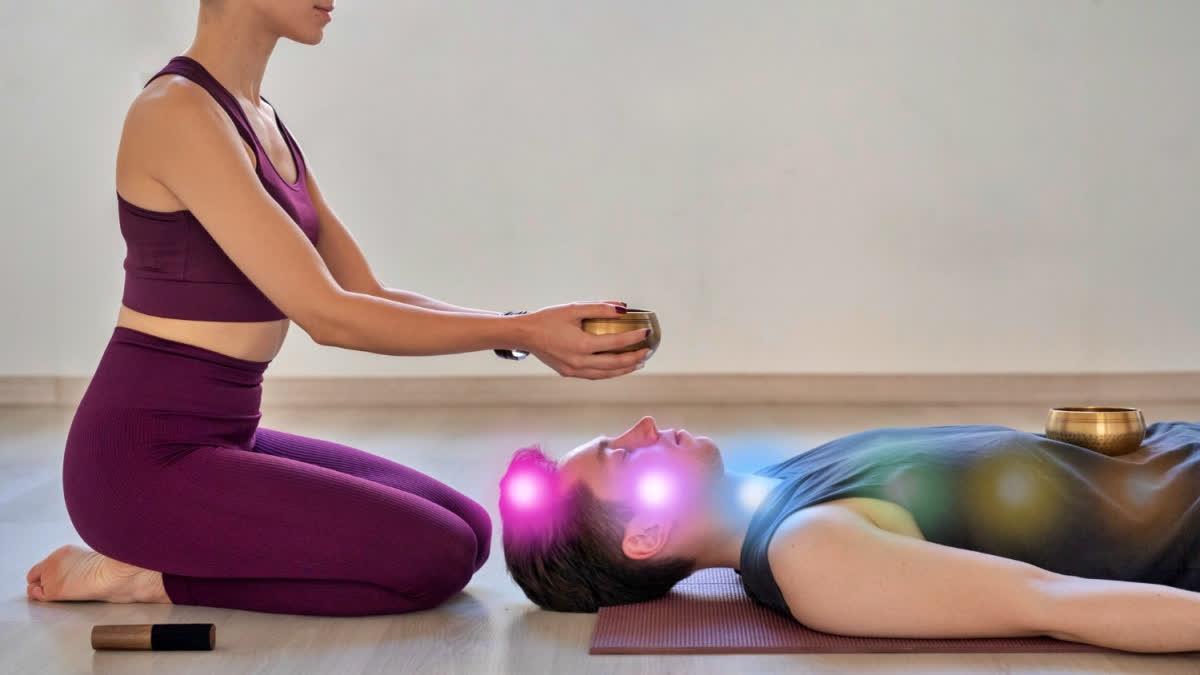While the rest of the world celebrates love with chocolates and roses today, a different kind of vibration is taking: aimed at healing the planet and its people through sound. Participants from across the globe unite, with the shared intention of radiating love and therapeutic frequencies.
How The Day Started
World Sound Healing Day was initiated in 2003 by Jonathan Goldman, a sound healer, author, and musician in the US. Goldman had spent decades exploring the ancient practice of sound therapy and sought to create a global movement that combined intention with the vibratory power of sound.
Goldman believed that the collective sound vibrations created by participants worldwide could generate positive effects, both locally and globally. Over the years, the event has expanded, with thousands of people participating in organized gatherings, sound baths, and individual meditations using various sound-healing techniques. The belief is that the synchronized, intentional use of sound waves can promote harmony; both within the human body and across the natural world.
The Science of Sound Healing
The idea that sound can be a tool for healing is not new. Ancient civilizations, including the Egyptians, Greeks, and Chinese, used sound as a form of medicine. Greek mathematician and philosopher Pythagoras explored the use of harmonic frequencies to treat ailments, while Tibetan monks have long used singing bowls to aid meditation and healing.

Benefits For Health And Wellness
Modern science is beginning to catch up. Studies have shown that specific sound frequencies can alter brainwave activity, reduce stress, and promote relaxation. The principle behind sound healing is simple: the human body is largely composed of water, making it an excellent conductor of sound vibrations. When exposed to certain frequencies, our cells can vibrate in harmony, promoting balance and healing.
For instance, research published in The Journal of Evidence-Based Integrative Medicine found that participants who attended a sound bath (an experience where individuals are immersed in the sound of gongs, bowls, and chimes) reported lower levels of tension, fatigue, and anger.

Another study in Frontiers in Psychology found that low-frequency sound stimulation could alleviate symptoms of chronic pain and anxiety. These findings suggest that sound therapy has measurable effects on the nervous system, potentially offering a non-invasive method for treating stress-related disorders.
Many people find sound healing to be a powerful tool for emotional release. The vibrations can help release stored trauma, grief, or anxiety, allowing for emotional processing in a gentle and non-verbal way. Some research suggests that sound therapy can aid in pain relief. A study conducted at the National Institutes of Health found that sound waves at specific frequencies could reduce pain perception and even assist in tissue regeneration.
For those struggling with insomnia or restless sleep, sound therapy offers a natural remedy. Soundscapes, white noise, and low-frequency tones have been shown to improve sleep quality by entraining the brain into slower, more restful wave patterns.
Popular Sound Healing Techniques
There are various methods used in sound healing, each with own benefits. Here are some of the most popular techniques:
1. Singing Bowls and Gongs
Tibetan and crystal singing bowls emit deep, resonant tones that help balance energy and promote relaxation. Gong baths, where participants are surrounded by the sounds of gongs, create a meditative state that can be deeply restorative.
2. Tuning Fork Therapy
Tuning forks are calibrated to specific frequencies and placed on various parts of the body to promote energy flow and healing. This technique is often used in conjunction with acupuncture.
3. Binaural Beats and Solfeggio Frequencies
Binaural beats use two slightly different frequencies played in each ear, creating a perceived third frequency in the brain that induces relaxation or focus. Solfeggio frequencies (a set of tones used in ancient Gregorian chants) are believed to have healing properties.

4. Vocal Toning and Chanting
Using one's own voice to produce tones can have a powerful effect on the body. Chanting mantras, humming, or even singing certain vowel sounds can stimulate the vagus nerve, which plays a key role in regulating stress responses.
5. Nature Sounds and White Noise
Natural sounds such as ocean waves, rainfall, and birdsong have been shown to promote relaxation and improve cognitive function. White noise (often used in sleep therapy) can also help mask disruptive sounds and create a calming environment.
As the understanding of vibrational medicine grows, sound therapy is becoming more mainstream. Hospitals and wellness centres are incorporating sound healing into their treatment protocols, and digital platforms offer guided sound meditations accessible to anyone.
References:
https://journals.sagepub.com/doi/10.1177/2156587216668109
https://www.frontiersin.org/journals/psychology/articles/10.3389/fpsyg.2022.980756/full
https://www.science.org/doi/10.1126/science.abn4663
(Disclaimer: The information provided in this health article is for general informational purposes only and is not intended as medical advice. It is not a substitute for professional healthcare consultation, diagnosis, or treatment. Always seek the advice of your physician or other qualified health provider with any questions you may have regarding a medical condition.)
Read more:



